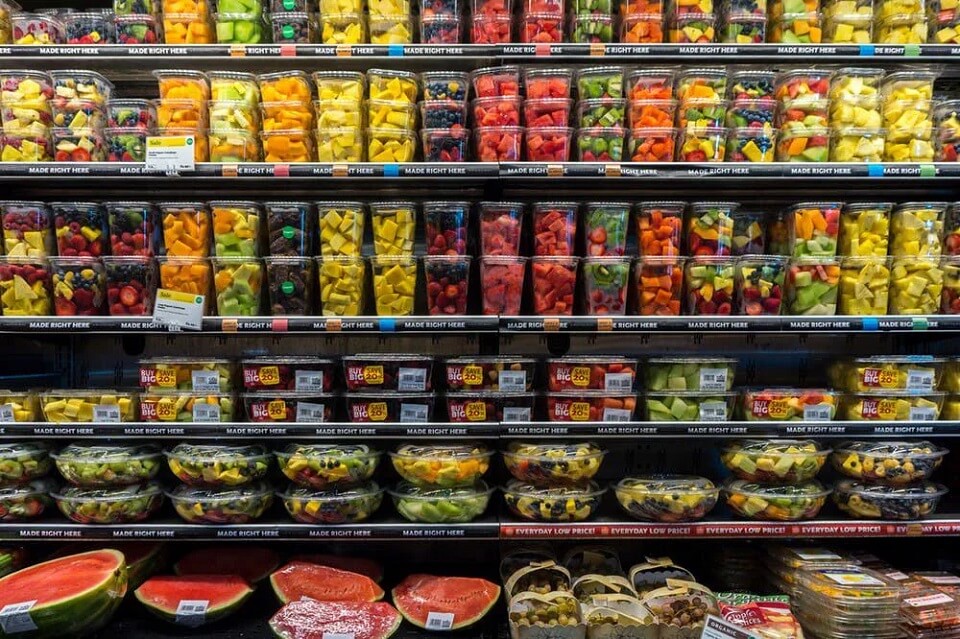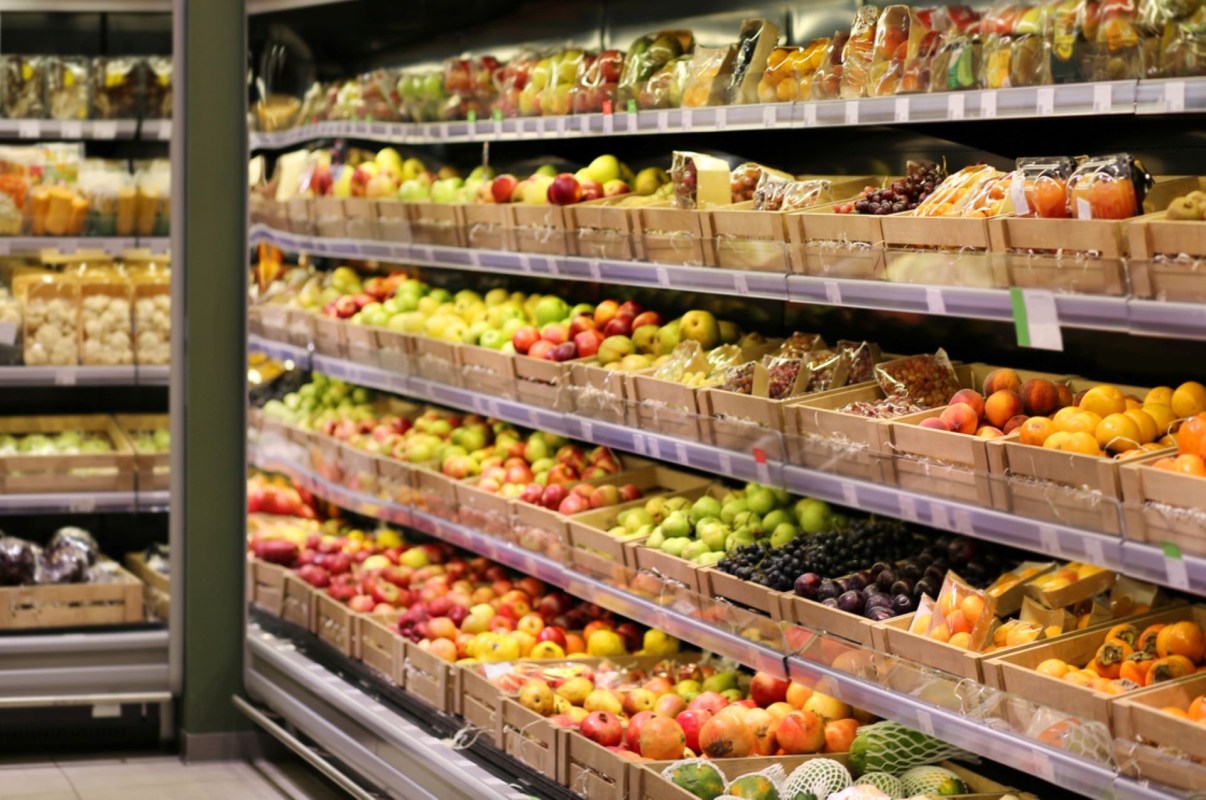"Eat healthy with a side of micro plastics."
This is what a Redditor wrote in a post to the r/Anticonsumption subreddit. Below the words is a photo of a grocery store fridge filled with fruits, almost all of which are packaged in plastic containers or wrapped in plastic.

"My favorite were individual potatoes wrapped in plastic. Not peeled or anything, mind you. Just 1 (one) somewhat dirty spud vacuum sealed in plastic," commented another user on a similar experience — one that is sadly all too common.
"Now multiply by thousands of stores across the world," lamented a second user.
As the original poster pointed out, the fruit — a healthy food choice — is being served with an unhealthy side of microplastics — tiny plastic particles less than 5 millimeters in length that are incredibly invasive.
They are becoming a growing concern to human health by experts and have been found everywhere, from in the clouds to bottled and tap water and even in human hearts and lungs.
Human health concerns aside, plastic waste is a major environmental concern. About 40 million tons of plastic waste are thrown away annually in the United States alone, only about 5% of which is recycled.
The rest finds its way into our waterways — where it acts as a carrier for pathogens — and into the stomachs of all kinds of wildlife, often leading to their deaths.
All of this considered, this store's produce practice understandably had commenters riled up.
"The amount of s*** that could be sold in cardboard or waxed paper but instead is in a absurdly thick plastic containers is mind boggling," said one.
"There's a rather obvious solution, a tax on single-use plastics, which of course won't happen because the people steering humanity don't want to solve the problem," added another.
This last comment touches on an important point — the fact that we can all work to reduce plastic's impact on our health and the environment.
We can enjoy produce without a side of microplastics by growing our food at home in whatever capacity we are able, vote for candidates who support climate policies and can work to eliminate these types of practices, and break up with single-use plastics by changing small habits.
Join our free newsletter for easy tips to save more, waste less, and help yourself while helping the planet.









